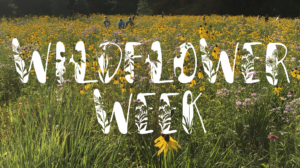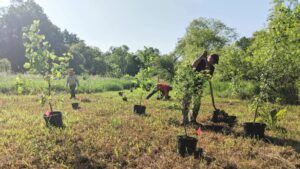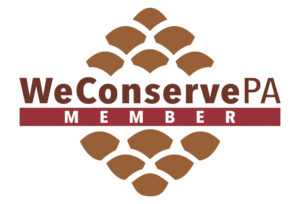By Zack Smith
Mankind’s mass production and consumption of plastic has reached all corners of our globe, from the depths of the oceans to the air around us. Plastic pollution comes in all shapes and sizes. Whether it is large chunks of styrofoam littering the side of the road or small fragments of broken down water bottles in our waters, plastic is constantly reaching new areas on our planet.
One form of plastic pollution that has been getting increasing attention in the recent decades is microplastic pollution. Microplastics are pieces of plastic that are less than 5 millimeters in diameter. Surprisingly, some microplastics are produced at this size. These are called primary microplastics. Secondary microplastics occur when litter or other plastic refuse enters the environment and begins breaking into thousands of little pieces. The small size and widespread abundance of microplastics make them easily transportable in our world. Consequently, scientists have been finding plastics in almost every single spot they look for them — down to the organs of living beings.
While only discovered in our global waters and environments recently, microplastic pollution has been found in museum collection specimens dating back to the 1950s. This indicates that microplastics are persistent and likely have been causing harm to life on Earth for much longer than we realized. Plastics carry contaminants and pathogens and can cause harm to species by hindering their ability to properly function. Oceans, the atmosphere, and urban rivers have been the main focus of most microplastic research as they tend to accumulate in these environments because other outputs are constantly bringing microplastics to them. Despite being a global problem, very little has been done to document microplastic pollution in low order streams like the headwaters located here in the Trust’s program area.
Over the past year, the Watershed Protection Team has been collecting and analyzing samples of stream water for microplastics to quantify the extent of any microplastic pollution in our area. Much to our surprise, microplastics are present in all of our headwaters at higher levels than anticipated. Dating back to March 2019, over 4,600 microplastics have been identified in roughly 200 liters of sample water.
In 2021, our Watershed Protection Team has adjusted their sampling protocols to see how a plastic-free sampling method impacts the count. Before the Covid-19 pandemic, samples were collected using our typical monthly water sampling methods, which included storing water in plastic containers, using distilled water from plastic jugs, and storing dried samples in plastic bins. Clearly, when trying to quantify and describe a major pollutant you want that pollutant absent from all aspects of collection — hence our new, plastic-free collection. The changes that we have made to our monitoring protocol have reduced the amount of plastic present in samples; we have yet to collect any field sample that is completely plastic free, which suggests that there is plastic in our waterways.
The hope is that this method will show truer values of the microplastics in our waterways and help us determine ways we may be able to further understand this pollutant. Our aim is to constantly monitor the health of our waterways so we can relieve any unwanted strain on our downstream neighbors. With microplastics present here in our headwaters, working to reduce their impact in rivers, bays, and oceans through small changes and constant monitoring at the source can go a long way.





